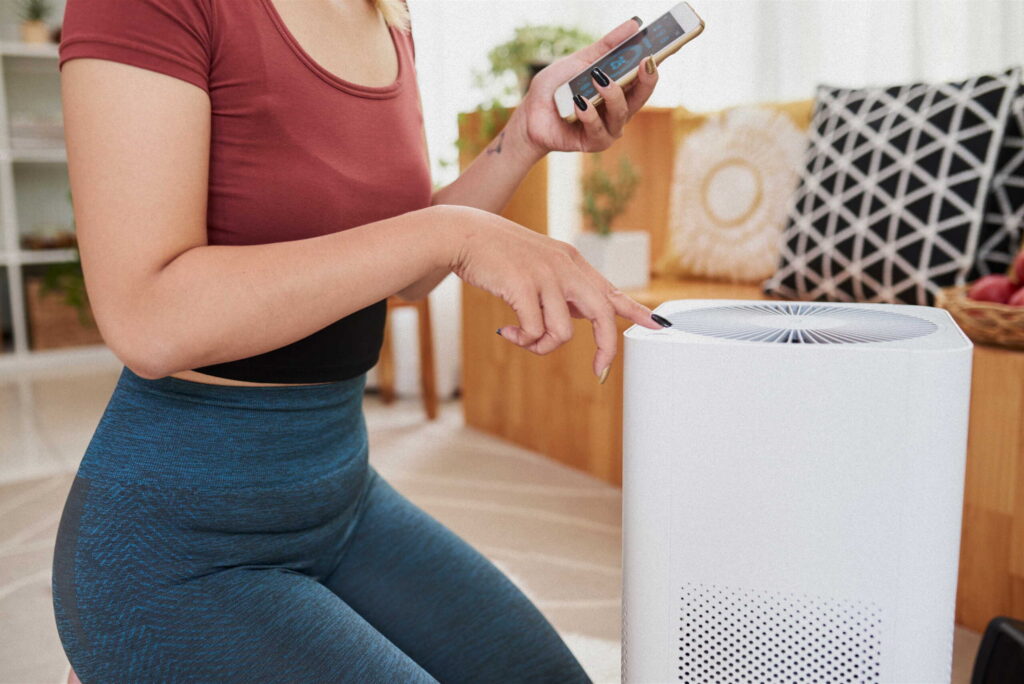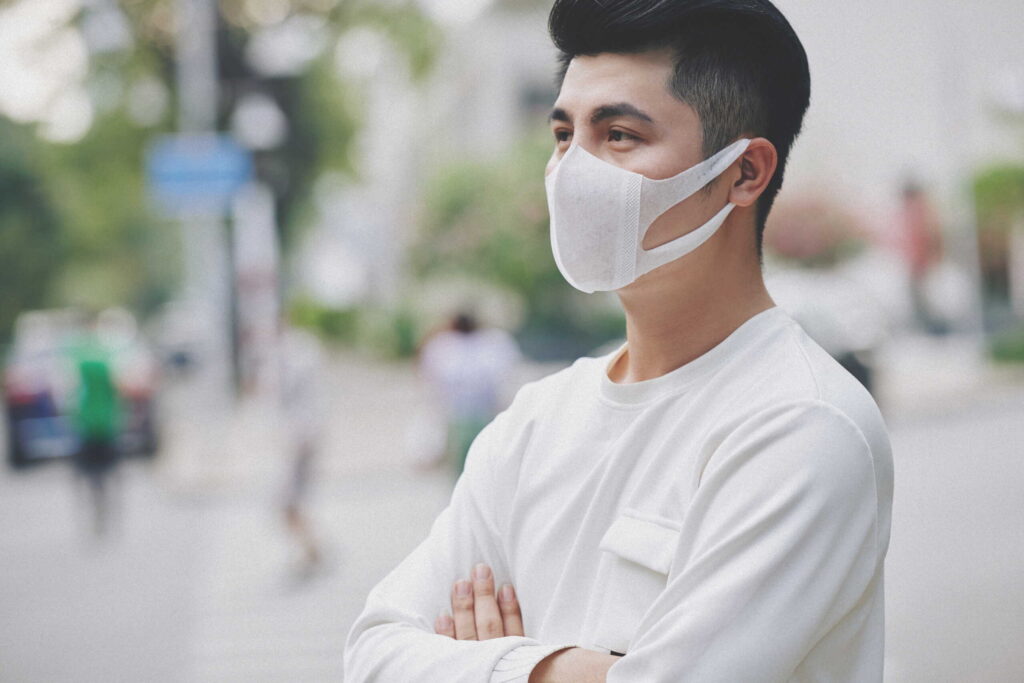Air quality plays a critical role in overall wellness, affecting not only the respiratory system but also broader aspects of physical and mental health.
As urbanization and industrialization increase, air pollution becomes a growing concern for both individuals and communities.
This article will explore how air quality affects health, the long-term consequences of poor air quality, and practical ways to protect ourselves from pollution.
What is Air Quality and Why Should You Care?
Air quality measures the cleanliness and safety of the air we breathe. It is typically assessed based on pollutant levels like carbon monoxide, nitrogen dioxide, sulfur dioxide, ozone, and particulate matter (PM).
Poor air quality primarily results from human activities, including vehicle emissions, industrial processes, and agricultural practices. With global air quality concerns rising, understanding the types and sources of pollution helps people make informed health decisions.

Breathing In Pollution: The Impact on Respiratory Health
Polluted air, particularly fine particulate matter (PM2.5 and PM10), ozone, and volatile organic compounds (VOCs), can enter the respiratory tract, leading to short-term irritation and inflammation. Long-term exposure to these pollutants can exacerbate chronic respiratory conditions, such as asthma, bronchitis, and chronic obstructive pulmonary disease (COPD).
People with existing respiratory conditions, children, and the elderly are more vulnerable to these harmful effects, highlighting the need for public awareness and preventive actions.
The Heart Risks Associated with Air Pollution
Beyond respiratory health, poor air quality is increasingly linked to cardiovascular conditions. Pollutants like fine particles and nitrogen dioxide can infiltrate the bloodstream, leading to systemic inflammation, blood vessel damage, and increased risk of hypertension, heart attack, and stroke.
This connection between air quality and cardiovascular health underscores the importance of monitoring pollution levels, particularly for those with pre-existing cardiovascular conditions.
The Cognitive Costs of Polluted Air
Recent studies indicate poor air quality may also impair cognitive function and mental health. Chronic exposure to airborne toxins has been linked to cognitive decline, memory problems, and even a higher risk of neurodegenerative diseases such as Alzheimer’s.
Air pollution also appears to influence mental health by contributing to increased rates of anxiety and depression. Understanding these associations highlights air quality’s comprehensive impact on physical and mental well-being.

How to Protect Yourself from Air Pollution
Reducing exposure to poor air quality requires proactive individual measures and broader community involvement. While some air pollution sources are beyond personal control, there are several ways to minimize the effects of pollution on your health.
One of the most effective personal strategies is using air purifiers at home, especially when pollution levels are consistently high. Air purifiers with high-efficiency particulate air (HEPA) filters can capture airborne pollutants such as fine particulate matter (PM2.5), dust, pet dander, and pollen.
Ensuring good ventilation in your home, such as using exhaust fans in kitchens and bathrooms, can also help remove indoor air pollutants and prevent their accumulation.
Monitoring outdoor air quality is crucial for planning daily activities. During times of high pollution, such as when the air quality index (AQI) is rated as unhealthy or hazardous, it is best to limit outdoor activities.
Another practical strategy to protect yourself from polluted air is wearing a mask to filter out fine particles. High-quality masks, such as N95 respirators, are particularly effective in blocking particulate matter, including PM2.5, a major concern in areas with poor air quality.
Additionally, individuals can support initiatives and engage with local environmental organizations to raise awareness about air pollution and push for cleaner urban planning strategies that incorporate green spaces, better public transit options, and pollution-reduction technologies.
By combining personal protective measures with advocacy for cleaner air policies, individuals can significantly reduce their exposure to harmful air pollutants and promote healthier environments for their communities.
Conclusion
As awareness of air quality’s impact on health grows, reducing personal exposure becomes vital. While individuals can make lifestyle changes to protect themselves, advocating for stronger environmental regulations and supporting green initiatives can create cleaner air for all.
By understanding the connection between air quality and health, individuals and communities can work together for a healthier future.
References
- https://www.sciencedirect.com/science/article/abs/pii/S0048969723049653
- https://jhpn.biomedcentral.com/articles/10.1186/s41043-024-00517-3
- https://pmc.ncbi.nlm.nih.gov/articles/PMC10292770/
- https://jtd.amegroups.org/article/view/77740/html
- https://www.tandfonline.com/doi/full/10.1080/07853890.2023.2264881#abstract
- https://pubmed.ncbi.nlm.nih.gov/37913932/
- https://pmc.ncbi.nlm.nih.gov/articles/PMC4112067/
- https://pubmed.ncbi.nlm.nih.gov/35278388/
- https://www.sciencedirect.com/science/article/pii/S0197018620300991
- https://pmc.ncbi.nlm.nih.gov/articles/PMC4311076/
- https://publications.ersnet.org/content/erj/55/6/1902056
- https://pmc.ncbi.nlm.nih.gov/articles/PMC4740163/
Disclaimer
- It is intended for general informational purposes only: The information provided on BioKissed’s website and app, including but not limited to business opportunities, nutrition tips, healthy lifestyle tips, healthy lifestyle practice articles, nourishing recipes, and wellness articles (hereinafter collectively referred to as „Content“), is intended for general informational purposes only. The Content is not intended to be a substitute for professional business advice, medical advice, diagnosis, or treatment.
- It is solely at your own risk: BioKissed does not recommend or endorse any specific tests, physicians, products, procedures, opinions, or other information that may be mentioned on the website or app. Reliance on any information provided by BioKissed, its employees, contracted writers, or others appearing on the website or app at the invitation of BioKissed is solely at your own risk.
- BioKissed does not endorse or approve any views in the Content: BioKissed does not guarantee the accuracy, completeness, or usefulness of any Content, nor does it endorse any views expressed within the Content. The inclusion of any Content on BioKissed’s website or app does not imply endorsement or approval of such Content.
- You voluntarily assume all such risks: Before participating in any challenge, making significant lifestyle modifications, altering your dietary practices, or engaging in any related activities, it is advisable to assess your personal health and fitness levels. BioKissed expressly disclaims responsibility for the substances individuals choose to consume, and the company is not liable for any consequences, including those related to food allergies, resulting from such choices. By choosing to participate in any challenge, you acknowledge and agree that any such activities carry inherent risks, and you voluntarily assume all such risks, even if they arise from the negligence of BioKissed, its affiliates, or its members.
- BioKissed and its content providers disclaim any responsibility or liability for consequences: BioKissed and its content providers assume no responsibility or liability for any consequence relating directly or indirectly to any action or inaction you take based on the information found on or through BioKissed’s website or app.
- Read more
